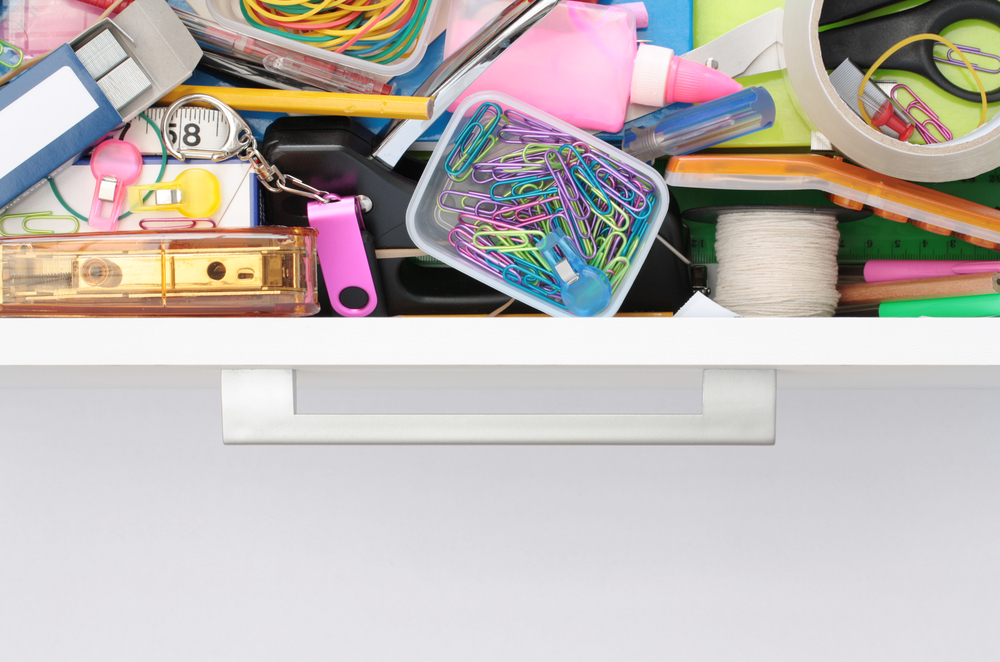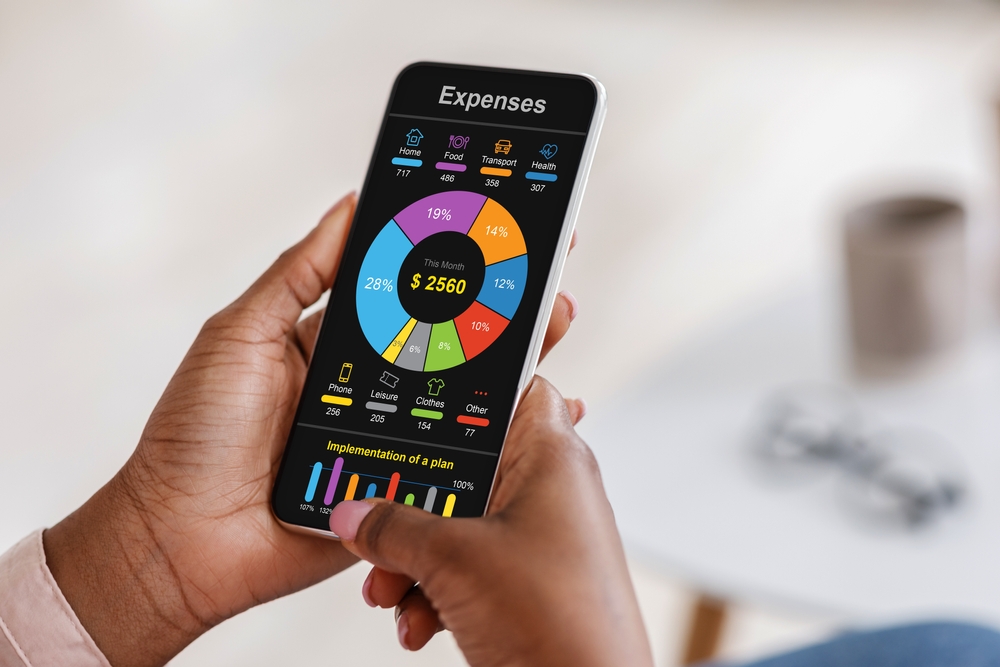Living in style can often mean walking the thin line between enjoying life’s luxuries and overextending yourself financially. The modern world seduces with new gadgets, cutting-edge fashion, and Instagram-worthy experiences, making it easy to overlook the reality of your bank balance. While living beyond your means might seem harmless at first, the repercussions can be both immediate and long-lasting. Here are 14 telltale signs that you’re spending more than you should, even if you haven’t realized it yet.
1. Your Credit Card Balance Never Reaches Zero

You might think of your credit card as a convenient tool, but if the balance never hits zero, that’s a red flag. Those minimum payments you’re making aren’t enough to tackle the mounting interest, and soon enough, your debt quietly balloons. According to a study by the National Bureau of Economic Research, many people underestimate the cost of carrying a balance, leading to financial strain. If this is your situation, it might be time to reassess what purchases are truly essential and start setting up a payment plan to dig yourself out.
Living in debt can create a snowball effect, affecting your credit score and future borrowing capabilities. This financial juggling act might seem manageable now, but it often leads to unnecessary stress and anxiety. Finding ways to adjust your lifestyle and reduce spending can be liberating. Start by analyzing your monthly expenses and identifying where you can cut back — small changes can lead to substantial financial relief over time.
2. You Constantly Borrow Money from Friends

Borrowing money from friends occasionally is understandable, but making it a habit is a different story. If you’re frequently relying on your social circle to cover costs, you’re likely living beyond your means. Every time you ask for a loan, you risk straining valuable relationships for temporary financial relief. It’s a pattern that can become increasingly difficult to break as you become reliant on others.
To avoid this pitfall, consider setting up an emergency fund to cover unexpected expenses. This fund acts as a financial cushion, reducing your need to lean on friends during tough times. By prioritizing savings, you can regain control over your financial life and foster healthier relationships. A little financial discipline now can prevent awkward conversations and protect your friendships in the long run.
3. You Spend as Soon as You Earn

Income should ideally cover expenses with room for savings, but if your paycheck vanishes right after it’s deposited, you might be living beyond your means. Spending immediately often leaves little room for savings or unforeseen expenses, indicating a budget imbalance. A report from the Consumer Financial Protection Bureau highlights that many people lack savings even when they earn enough to save, often because of poor spending habits. By creating a budget that includes savings, you can manage your spending more effectively and ensure financial stability.
This paycheck-to-paycheck cycle can lead to financial stress, especially during emergencies. It might also mean missing out on opportunities that require upfront costs, like investment options or spontaneous travel. Prioritizing savings by setting aside a fixed amount each month can offer financial security. With a bit of discipline, you can enjoy financial flexibility without sacrificing your peace of mind.
4. You Regularly Delay Bill Payments

Postponing bill payments might seem like a harmless way to stretch your budget, but it’s a sign you’re living above your means. Delays lead to late fees, increased interest rates, and potential damage to your credit score. Each postponed payment pushes you further into financial instability, making it harder to catch up over time. It becomes a cycle that locks you into paying more than the original bill amount, straining your finances even further.
One way to break this cycle is by setting up automated payments for your essential expenses. This ensures that crucial bills are paid on time, reducing the risk of forgetting and incurring fines. By re-evaluating your budget, you can prioritize timely payments and avoid the pitfalls of financial mismanagement. Financial peace often begins with small, consistent actions that prevent future stress.
5. You Avoid Looking at Your Bank Statements

Turning a blind eye to your financial statements is a classic sign you’re spending more than you should. If the thought of checking your account balance fills you with dread, it’s time to confront the issue head-on. A survey by the National Endowment for Financial Education found that people who track their spending regularly are more financially stable. Facing your bank statements might be uncomfortable, but it’s essential for financial clarity and control.
Regularly reviewing your finances allows you to identify where your money is going and make necessary adjustments. It can highlight unnecessary expenses and help you redirect those funds toward savings or debt reduction. By understanding your financial health, you gain the power to make informed decisions and reduce anxiety. Knowledge is power, especially when it comes to your personal finances.
6. You Rely on Buy Now, Pay Later Schemes

The lure of “buy now, pay later” schemes is hard to resist, but it indicates a potential cash flow problem. By delaying payment, you’re essentially borrowing money to fund your lifestyle, which can quickly spiral into unmanageable debt. These schemes often come with hidden fees and high interest rates, trapping you in a cycle of debt that’s hard to escape. While they provide short-term relief, the long-term implications can be financially crippling.
Instead of relying on these schemes, try to plan larger purchases by saving up in advance. This approach not only saves you money in interest but also gives you a better understanding of the true cost of your desires. Financial patience and planning are invaluable tools that can help you maintain a balanced budget. Recognizing the true cost of deferred payments can lead to more mindful spending habits.
7. You Have No Emergency Savings

Living without an emergency fund is a risky financial move that suggests you’re spending beyond your means. This safety net can prevent financial disaster in case of unexpected events like job loss, medical emergencies, or urgent home repairs. According to a study by the Federal Reserve, a significant portion of Americans would struggle to cover a $400 emergency, highlighting the importance of savings. Building an emergency fund can provide peace of mind and financial resilience.
Start small, aiming for a few hundred dollars, and gradually increase your savings to cover three to six months of living expenses. Having this cushion allows you to deal with life’s surprises without derailing your financial stability. It requires dedication and patience, but the payoff is a stress-free financial safety net. Preparing for the unexpected is an act of self-care that your future self will thank you for.
8. Your Lifestyle Upgrades Don’t Match Your Income

If your taste for luxury increases faster than your paycheck, you might be living beyond your means. This disparity can create an unsustainable lifestyle, leading to debt and financial insecurity. Your income should be the primary factor in determining lifestyle changes, not societal pressures or fleeting desires. When you let your lifestyle outpace your earnings, you’re setting yourself up for long-term financial stress.
Consider aligning your spending with your current financial situation, rather than projected or hoped-for income. This requires an honest assessment of your needs versus wants, and a commitment to financial responsibility. By living within your means, you can indulge occasionally without compromising your financial future. Remember, true luxury is the freedom and peace of mind that comes from financial security.
9. You Frequently Use Payday Loans

Resorting to payday loans is a clear sign that you’re stretching your finances too thin. These short-term loans often come with sky-high interest rates and fees, trapping you in a cycle of borrowing. Relying on payday loans indicates that your regular income isn’t sufficient to cover expenses, pointing to a deeper financial issue. While they offer immediate relief, the long-term consequences can be detrimental to your financial health.
Exploring alternative options like cutting unnecessary expenses or finding additional sources of income can help break this cycle. Budgeting and financial planning are essential tools in preventing the need for such high-cost borrowing. Building an emergency fund and managing expenses can help you avoid the pitfalls of payday lending. Taking proactive steps can lead to a more secure and less stressful financial future.
10. You Justify Every Purchase as a “Need”

Convincing yourself that every purchase is a necessity can lead to financial trouble. This mindset blurs the line between needs and wants, resulting in overspending. It’s crucial to distinguish between essential expenses and those driven by desire or impulse. By labeling everything a “need,” you might be masking the reality of living beyond your means.
Pause before making a purchase to evaluate its necessity and impact on your budget. This mindful approach can help you identify and eliminate non-essential spending. By prioritizing genuine needs, you can allocate funds more effectively and work toward financial goals. Embracing a more intentional spending mindset can significantly improve your financial well-being.
11. You Regularly Withdraw From Savings

Dipping into savings for regular expenses is a telltale sign you’re overextending your finances. Savings should ideally be reserved for emergencies or long-term goals, not everyday spending. If you’re regularly using your savings to cover shortfalls, it indicates a misalignment between your income and lifestyle. This pattern can deplete your savings over time, leaving you vulnerable to financial setbacks.
To reverse this trend, create a realistic budget that aligns with your income and expenses. Reduce discretionary spending and focus on building your savings back up. By committing to a savings plan, you can regain financial stability and prepare for unexpected expenses. Prioritizing long-term financial health over short-term convenience is a wise investment in your future.
12. You Shop to Feel Better

Retail therapy can be a temporary mood booster, but using shopping as an emotional crutch often leads to financial issues. If you find yourself hitting the stores every time you’re feeling down, you might be spending more than you can afford. This habit can quickly escalate, leading to buyer’s remorse and a strained budget. The thrill of a new purchase fades quickly, but the financial impact lingers.
Consider finding healthier outlets for stress relief and emotional support, like exercise, hobbies, or spending time with loved ones. These alternatives can provide emotional fulfillment without impacting your finances. Recognizing the emotional triggers for overspending can help you make more conscious financial decisions. By addressing the root cause of your spending habits, you can cultivate both emotional and financial well-being.
13. Your Home Is Filled With Unused Items

Accumulating things you rarely use is a sign that your spending habits may be out of control. This clutter not only affects your living space but also indicates wasted financial resources. Every unused item represents money that could have been saved or invested elsewhere. This habit highlights the disconnect between your purchases and their actual value or utility in your life.
Take inventory of your possessions and consider selling or donating items you no longer need. This decluttering process can provide extra cash and a clearer perspective on your spending patterns. By valuing quality over quantity, you can make more intentional purchasing decisions. A more minimalist approach to consumption can lead to greater financial freedom and a more organized living environment.
14. You Have No Clear Financial Goals

Chaotic spending often stems from a lack of clear financial objectives. Without goals, it’s easy to succumb to impulsive purchases and lifestyle inflation. Financial goals provide direction and motivation, helping you prioritize spending and savings. Without them, you risk drifting into financial uncertainty, making it difficult to achieve long-term stability.
Start by setting achievable, specific goals, such as saving for a vacation, buying a home, or building a retirement fund. These targets can guide your financial decisions and encourage more mindful spending. Regularly reviewing and adjusting your goals can keep you motivated and on track. Having a clear financial plan allows you to enjoy life’s pleasures without compromising your future security.
This article is for informational purposes only and should not be construed as financial advice. Consult a financial professional before making investment or other financial decisions. The author and publisher make no warranties of any kind.








